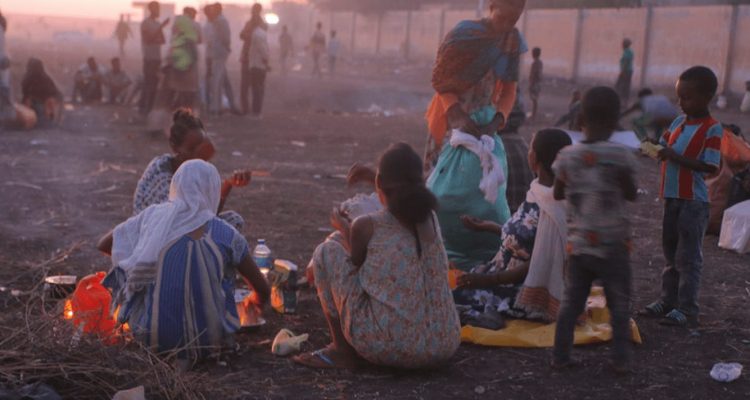Earlier this week, Mark Leon Goldberg hosted a podcast entitled, “The Civil War in Ethiopia, Sparked by a Conflict in the Tigray Region, is Getting Worse”. The podcast features Will Davison, an analyst from the International Crisis Group (ICG).
Regrettably, the program was full of misinformation, glaring contradictions, tenuous presumptions as well as substantial oversights. Ultimately, it lacked balance and failed to provide an objective, accurate analysis or discussion about the situation in the Tigray Region in Ethiopia.
While numerous problems can be dissected and unpacked, I will focus here, for the sake of brevity, on the most prominent ones.
First off, the program completely overlooks the role played by the TPLF in starting the conflict in the Tigray Region of Ethiopia by its launching of a massive attack on the Northern Command in early November 2020. For an “expert” to somehow overlook this fundamental, basic fact, is woefully unacceptable. It is indeed a gross disservice and insult to our collective intelligence.
High-level TPLF officials themselves did not mince their words when they acknowledged, with bravado, the massive attack that they launched on the Northern Command after months of meticulous and stealth preparations. A recent United Nations memo describes the sequence of events and concludes that this was “an act of war everywhere in the world, and one that typically triggers military response in defense of any nation.”
Additionally, the podcast programme fails to mention the important fact that over the past several years, the TPLF was also actively preparing for war, stockpiling weapons, and training over 250,000 militias and Special Forces (by embezzling and diverting development funds). In the past two years in particular, it stoked tensions and dangerously ratcheted up violent, extremist, and hateful speech, before launching its reckless attack on 3 November 2020. Furthermore, the TPLF summarily dismissed all overtures for peace.
As it downplayed the TPLF’s instigation of the conflict in Tigray, the program also sought to rewrite the basic history about the 1998-2000 border war between Eritrea and Ethiopia. Contrary to the narrative peddled in the podcast, the 1998-2000 war erupted due to TPLF’s unlawful schemes of “territorial aggrandizement” by incorporating large swathes of sovereign Eritrean territories in the western part of the country as well as incipient schemes of “regime change” in Asmara.
The program uncritically parrots vicious allegations and reports about “Eritrean crimes in Tigray”, which are utterly false and maliciously fabricated for ulterior political ends. I will not dwell on the outrageous and shifting allegations concocted every day by TPLF Trolls and their handful external enablers who have unscrupulously resorted to a frantic disinformation campaign to recoup in cyberspace what their fiendish war plan has failed to achieve on the ground.
It is worth noting, too, that the “expert” featured on the program effectively spent years as a propagandist for the TPLF, downplaying its serious crimes and grave failures (including widespread hunger and famine), trumpeting a mirage of “its leaps in progress and growth”, and even coaching and directing its officials about PR.
More recently, he was deported by Ethiopian authorities, thus raising significant questions about conflicts of interest, credibility, and grasp of a situation from which he is thousands of miles away. This historical backdrop is an important element in parsing the analytical flaws and motivational dimensions of the podcast programme.
Another institutional dimension is ICG’s historical stance on Eritrea. The sad fact is the ICG has, in its periodic reports and prognosis on Eritrea in the past ten years, grossly misrepresented the country. The litany of recurrent faults include: distortion or omission of facts; wanton disregard of the country’s progress and achievements; and entrenched bias that is hard to explain and comprehend. In some of the highly flawed reports in the past, Eritrea has been portrayed as a “failed state on the brink of disintegration” with presumptive authors contemplating the “timelines for collapse” and drawing up “transitional plans”. Eritrea’s repeated efforts to seek redress to malignant reports have invariably fallen on deaf ears.
In the event, the recent programme, marked as it is with factual errors, untenable prepositions and lack of any semblance of balance, is nothing more than the latest episode in a long series of utterly negative reports. This is not the academic standard and caliber that the ICG should assume for the sake and respect of its readers as well as to be fair to the people and nation of Eritrea.

Leave a Reply